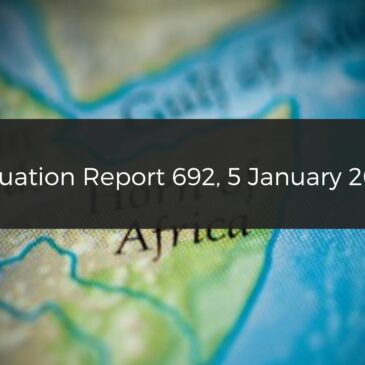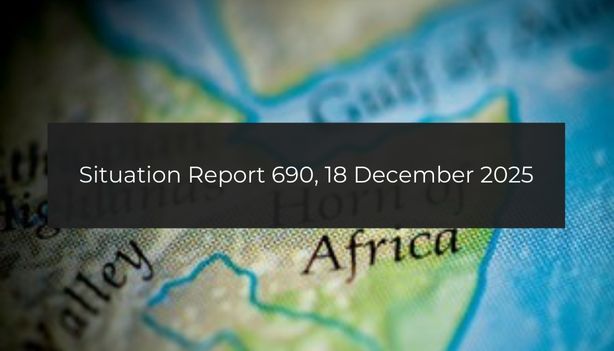Situation report: Somaliland’s independence recognised by Israel; Kidane extradited from UAE to the Netherlands; Drone strikes across Sudan by SAF and RSF
posted in: Africa, African Union, Benjamin Netanyahu, Bombing, Darfur, Djibouti, Doctors without Borders, Egypt, Eritrea, Ethiopia, European Union, Horn of Africa region, Human Trafficking, Humanitarian Crisis, IOM, Israel, Libya, Malnutrition, Médecins Sans Frontières, Migration, Netherlands, Rapid Support Forces, RSF, Situation report, Situation Reports, Somalia, Somaliland, South Sudan, Sudan, Sudanese Armed Forces, The Netherlands, Tigray, Trafficking, United Nations, UNSC |
0
SITUATION REPORT – HORN OF AFRICA
No. 692 – 5 January 2026
Situation Report: Special on Digital Data – Pre-Holiday Update on EEPA’s work on Data Sovereignty
Pre-Holiday Update on EEPA’s work on Data Sovereignty; The EEPA Situation Report concludes the year with the observation that Data Sovereignty is a core element of national and continental security, and a strategic priority for African, European and global decision-makers.
Situation Report: Gambella police chief killed; SAF accused of ethnic targeting of Kanabi communities; EU doubles down on stricter migration policies
posted in: Africa, African Union, Eritrea, Ethiopia, European Union, Horn of Africa region, Human Rights abuses, Humanitarian Aid, Humanitarian Crisis, IDPs, IOM, Migration, Rapid Support Forces, Refugees in the EU, RSF, Situation report, Situation Reports, South Sudan, Sudan, Sudanese Armed Forces, Tigray, UNHCR, United Nations |
0
SITUATION REPORT – HORN OF AFRICA & NEWS HIGHLIGHTS
No. 690 – 18 December 2025




